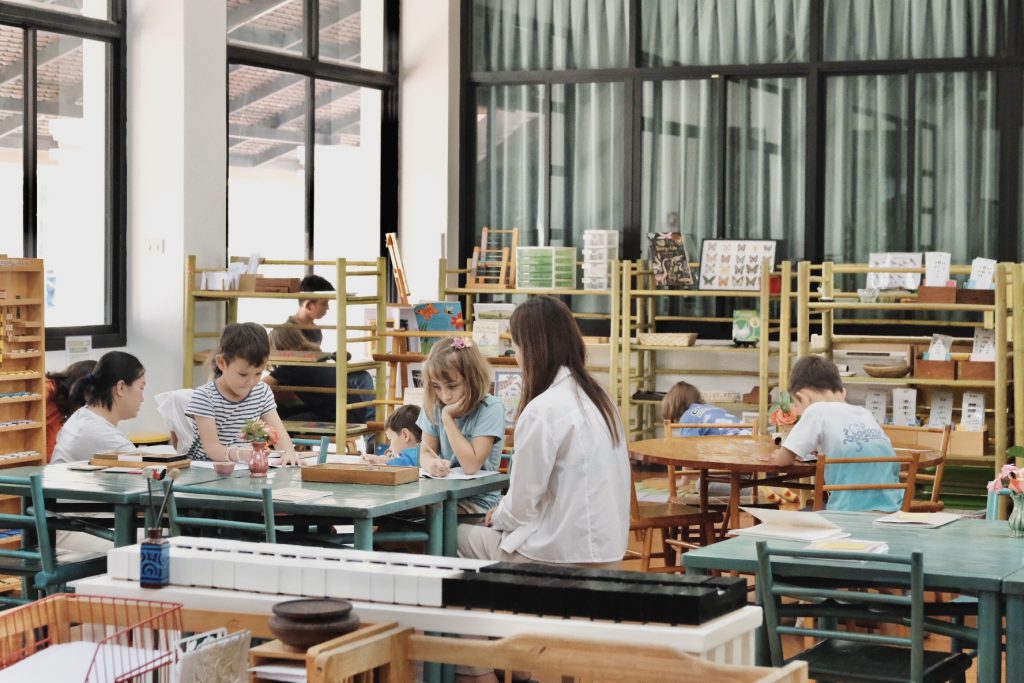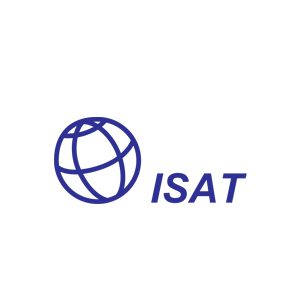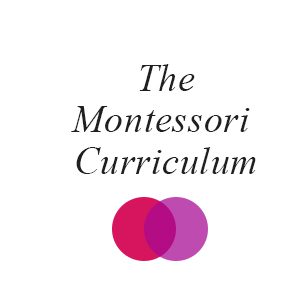Montessori Elementary

Montessori Elementary Program
Our elementary program provides a rich and extensive academic curriculum which includes unlimited opportunities for students to develop socially and emotionally. It is organized into two 3-year mixed-age classes: the ‘lower elementary’ (for students aged 6 – 9) and ‘upper elementary’ (for the 9 – 12’s).
The Reasoning Mind
Elementary children want to explore the universe through the use of reason and imagination. They stretch to imagine the nearly unimaginably big, the extremely ancient. Their curiosity is directed not just at the basic facts, but at the “why” and “how.” A Montessori guide inspires children to use the rich environment, which has been specially prepared to encourage self-directed learning. To accommodate the nature of the child at this age, the curriculum is both open-ended and highly integrated, allowing deeper exploration than in a ‘unit’ approach. Children experience that skills, knowledge and learning disciplines do not exist in a vacuum, but that they draw upon each other.
Learning According to Pace and Interest
Think of it as customized education. The individualized nature of the program allows each child the flexibility to pursue individual interests and to progress at his or her own rate. Children work with concepts they have learned by developing projects. In this way, children grow in their ability to set goals and evaluate their own work. They begin to understand their own strengths and challenges in learning and become confident in their abilities so that they freely express curiosity, ask questions, and problem-solve. Since the teacher knows each child very well and keeps detailed records of their work, testing is unnecessary. Test-taking is taught in the upper elementary as a life-skill.
Social and Emotional Growth
The elementary years are critically important, not only for the acquisition of knowledge and skills that will stay with these children for a lifetime, but also for the development of their attitudes toward learning, toward themselves and toward others.
Mathematics
Maria Montessori described the “mathematical mind” as a universal human attribute. During the elementary years, a sequence of lessons brings the child naturally and gradually to the point of understanding abstract mathematical operations. The structure of the decimal system, the operations of addition, subtraction, multiplication and division, and other key concepts follow this same pattern.
Once they have a firm understanding of the concepts, children move toward memorization, keeping track of their own progress and work both in teams and individually to practice them. By using the Montessori math materials, most children experience many concepts including fractions, squared and cubed numbers, multiples and factors, taught much later in traditional school settings.
History, Geography, Biology
The history of life, both before and after the arrival of humankind, is inextricably linked to other subjects such as geology, geography and biology. The study of history reveals many fascinating connections and interdependencies, not only among various peoples, but between people and the changing physical environment.
Lessons begin with theories on the origin of the Universe, in which principles of physical science are revealed, and then proceed to examine the forces that have acted over the ages to shape the world we inhabit. Children explore volcanism, the work of water, wind and air, and the basic physical properties of matter. Demonstrations, field activities and experiments are employed to help the children learn to perform on their own. The relationships of earth, sun, seasons, zones of climate, etc. are also studied along with economic and political geography.
There is emphasis on understanding plant and animal behavior and physiology. The basic needs of plants and animals (e.g. water, food, defense, reproduction) provide the framework for investigating the unique varieties from the point of view of adaptation, both to contemporary environments and throughout time. Children’s observation and discussion of differences build up the stores of experience with which they further their understanding of biological classification.
Language
The elementary child, exercising their powers of reasoning and curiosity, learns the fascinating history of language from the distant past to the present. The teachers share how language continually changes, that it reflects history and the interlocking subjects of the classroom. The children are conscious of language wherever they go. Reading, writing and spelling skills blossom through work with materials and activities in all subjects. Writing develops in connection with explorations, research and experiments, as children want to share what they have discovered. Creative writing allows all children to acquire a valuable tool for self-expression very early in life. Reading becomes the most important means to satisfy their interests.
Discoveries in grammar, word study, and etymology quite naturally give rise to topical spelling lists; thus the children’s spelling drill and dictation is assisted by their knowledge of the words’ origins, meanings and functions.
Music, Art, Drama, Phys-ed
Techniques and media for artistic expression are taught. Children use colored pencils, clay, paints, collage and other media to illustrate the work they do in all subjects. Since art is not limited to art class periods and projects, children’s creativity has a chance to truly grow and bloom as a part of everyday activity.
Drama is a very noticeable part of a Montessori classroom. It is a special love of many children this age, and serves a number of purposes. Making an original play or skit about something they have recently learned is one way in which children truly make knowledge their own, as well as a means of self-expression and experience in performing for others.
Children are physically active continuously throughout the day. Nonetheless, there is a need for the aerobic activity and skill development that physical education provides. Staff teach activities such as yoga, soccer skills and basketball skills at different times during the year. Always our emphasis is on skill-building, to develop consciousness and control of movement, to enhance personal confidence, and to teach the techniques and values of teamwork and cooperation.




